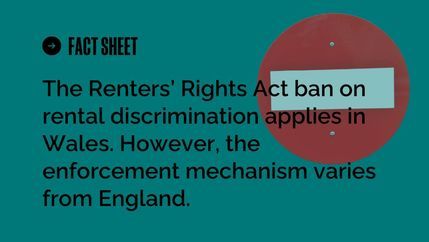
This Primary Authority Advice has been produced by Warwickshire County Council Trading Standards Service, in partnership with The Property Ombudsman and Propertymark, for use by member businesses as an aid to complying with the law. If you follow this advice correctly, your local Trading Standards Service should respect this and not ask you to comply with the law in a different way. If you are contacted by a local authority enforcement body, please inform them that you are a member of the scheme.
Assured advice issued:
Subsidence
1. If a property has been subject to subsidence in the past but this has been rectified and appropriate guarantees have been given, does the agent need to disclose that fact?
If a property had subsidence and even if this has been rectified, we would expect the agent to disclose these facts to any potential buyer to enable them to make an informed decision. Some mortgage companies will require a full survey before agreeing to lend, therefore a buyer may not make a transactional decision to view/offer on the property, had they known about the subsidence. It does not matter how long ago the subsidence occurred.
Dropped kerbs
2. If the agent appraises a property where the seller’s car is parked on a paved area in the front garden, but the kerb is not “dropped”. is it appropriate for the agent to describe it as “off road parking”? Or describe it as “off road parking but kerb not dropped?” Or are neither appropriate?
If the kerb outside a property has not been dropped to allow vehicle access, in accordance with Section 184 Highways Act 1980, then anyone crossing that footway in a vehicle may commit an offence.
Therefore, any agent advertising such a property should make it clear where there is ‘potential for off road parking’, that this is subject to obtaining permission to construct a vehicle access crossing.
In certain circumstances planning permission may also be required
Property next to a potential building plot
3. An agent is selling a property with a large area of land next to it, which is being sold separately as a potential building plot. The plot is described as potential for development, subject to planning permission, but no permission is currently granted and there is no guarantee that it would be. Do they have to disclose this on the sale particulars if planning permission has not been guaranteed?
It is important to consider whether these facts would have an effect on the main characteristics of the property. If the development of this land would affect the property, e.g. the view, then the information will be material for any potential purchaser.
We would expect an agent to bring to such facts to the attention of a buyer. Following this, we would recommend that it is good practice for agents to encourage potential purchasers/tenants to carry out their own checks, or via their solicitor, before buying/renting a property.
If any further information was presented to the agent at a later date, and this was corroborated with the appropriate planning authorities, then the agent would be obliged to make this information known.
Garden on 'permanent lease'
4. House being sold with a garden twice as long as every other house in the road. It turns out that the “extended” piece of garden is leased from the railway company that operates the train line at the back of the houses. The land is on a “permanent” lease at a peppercorn rent and has been for 25 years – does the agent need to disclose that on the sales particulars?
The agent needs to disclose information regarding land in use by the owners of the property. To ensure potential purchasers are not misled, any additional leasing agreements and rents due should be made known to potential purchasers.
Liability on incorrect sellers information
5. An agent describes a property in accordance with the seller’s information – having no reason to doubt that what he is being told. When a prospective buyer views the property, he notes that the rear access is through a pub car park and he asks the seller about it. Seller says he has a right of way, buyer makes offer and incurs expenses – conveyance finds out that there is no right of way and the buyer wants to pull out and recover expenses. Who is liable: agent or seller?
If the agent has received the information from the seller and has made reasonable enquiries to substantiate the claims made, and not found any reason to doubt them, then the agent may be able to rely on a due diligence defence, in relation to any criminal offence.
However, it is important to note that once the agent is aware of the issue, they must update the sales particulars and other marketing material to correct any misleading information written about access rights.
Second world war bombs
6. Agent is asked to market a property and discovers that the local council have published a plan of where every bomb hit in the area during the Second World War. Where it shows the building was the site of a bomb drop and eight people were killed in the air raid. Should the Agent disclose this?
In our opinion, the information of where bombs may have exploded 70+ years ago would not be material information for the average consumer today. The agent would not need to disclose this to potential purchasers.
Plot of land without planning permission
7. An Agent advertises a plot of land as potential for development, subject to planning permission, but no permission has been granted and cannot be guaranteed to be granted. Is it still correct for the agent to say ‘potential for development’? And if so, what caveats should they give, if any?
It is important to consider the phrase ‘average consumer’. Would an average consumer buy a plot of land, apply for a change of use and then develop the land? In our opinion, this activity is usually carried out by persons in the course of a business, or by consumers who would not be ‘average’ property buyers.
If the agent would like to use the term ‘potential for development’, then an appropriate caveat should be used, such as ‘the sale of this land is without planning consent, thus any development would be subject to planning permission’.
Download the full version
Download the full version of this advice to see what legislation and guidance Warwickshire County Council Trading Standards Service considered before providing this advice.




